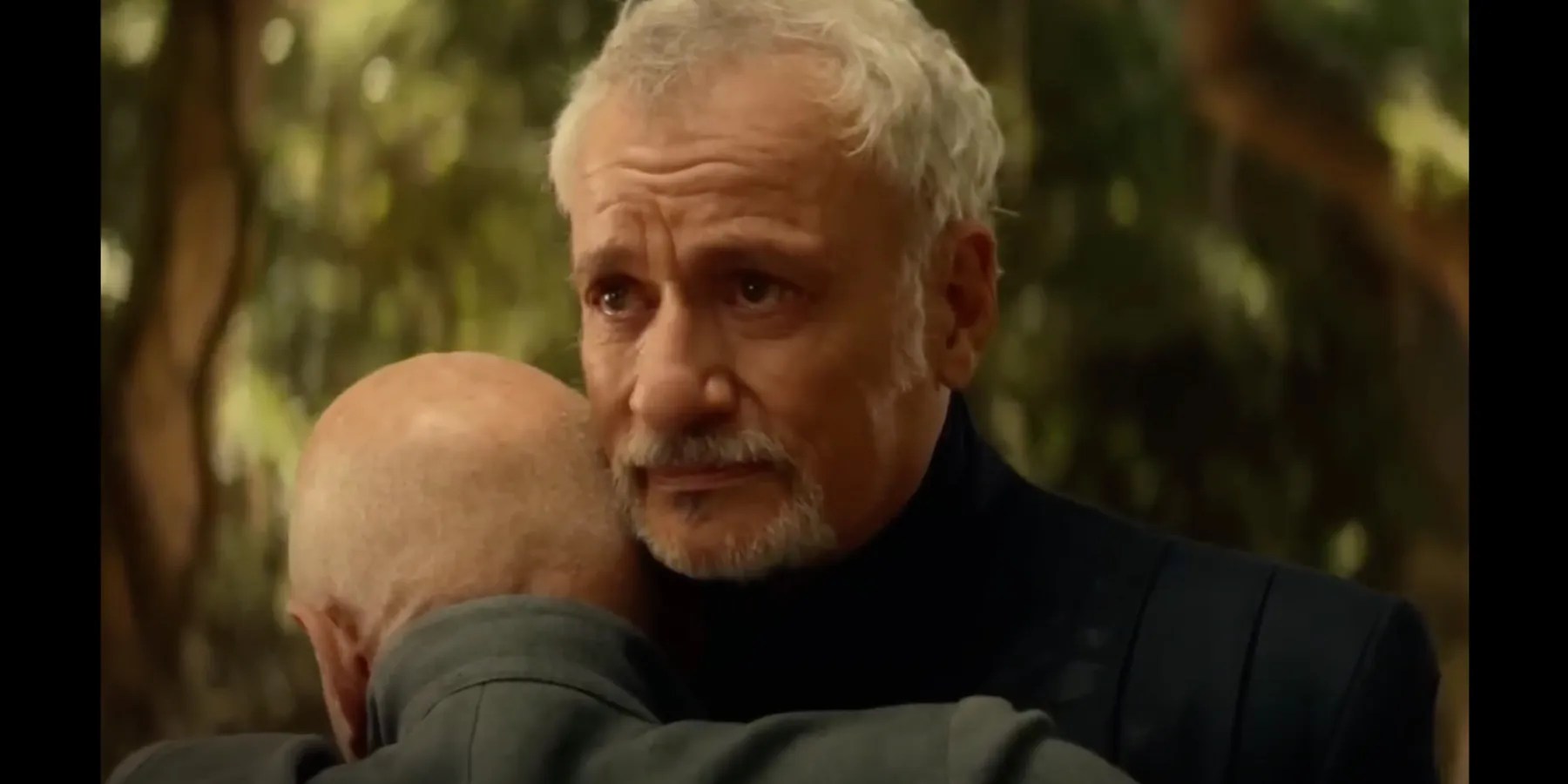One of the greatest gifts theStar Trekfranchise has given audiences over the years, other than some of the best examples ofsci-fi technology beyond its years, is its incredible array of characters. There are, of course, some who never truly sat right with audiences, such as overenthusiastic chef Neelix inVoyager, orknow-it-all whiz kid Wesley CrusherinThe Next Generation. However, there are many more characters whom even casual watchers fell in love with. Picard, Sisko, Quark are some noteworthy ones, but there was of course the near-omnipotent, immortal Q. As it turned out though, this godlike figure is not so immortal after all.
While thePicardTV show of recent years has been met with mixed reviews, it has done a lot of carry on the stories started during the days ofThe Next Generation. Life after Starfleet at Château Picard explores the attempted retirement of the famous captain himself, but season 2 decided to show the stories end for one ofthe franchise’s greatest antagonists-turned-friends: John de Lancie’s Q. The Q have always been suggested to be god-like beings of immense power, lording it over the majority of the universe. They have been around for forever, and are suggested to be impossible to kill — except by another Q, a concept explored in aVoyagerepisode. They neither age nor die, but inPicard,something interesting happened. The series focused around the idea of Q deteriorating and using what was left of his power to do what he does best: mess with Picard whiletrying to teach him an important lesson.

RELATED:Star Trek: What Would Happen If The Borg Could Assimilate A Q?
There is, with many thingsStar Trek,an in-universe explanation created to make logical excuses for an out-of-universe explanation. The latter in this case is simple. John de Lancie was not only done with the role, but he was too old to make it believable. Long gone are the years of him jumping around like a kid at Christmas, spiritedly messing with Picard or some other poor captain. (He didn’t dare crossSisko however, whom he avoided after their little ‘incident.’) The creators do go some way to explain this is the show. Q appears at first as the young that man Picard and audiences know,thanks to some fancy de-aging CGI. He would then snap his fingers to appear much older to match his old friend Picard, turning himself into de Lancie as he looks today.

The show could have kept this workaround going for future appearances if they wanted. It’s a fairly believable explanation that, although Q himself does not age, he can simply look like an old man whenever he wants. However, the reality was that de Lancie didn’t want to continue playing Q. He wanted to appear inPicard,but only as a way to end his beloved character’s story. And end it did, with a hug between him and his only friend in a strange but emotional moment, before disappearing into the great unknown.
The creators behindPicardcould have done somethingsimilar toDoctor Whowhere they replaced the actor. After all, this wouldn’t be difficult with a being who can change what they look like at whim. But their decision to kill of this particular Q was likely in the best interest of the franchise. It’s likely that nobody could do the role justice like de Lancie did. The Q race, however, surely continues, so maybe other Q;s will appear, but only time will tell.
.
The in-universe explanation for Q’s death is shrouded in mystery, but there are a few interesting fan theories that go some way to explaining it. Q himself states that even he does not know why his power is fading, and he is dying, unaware of what might come next. What’s interesting, however, is that he is kind of excited by this. Living for an impossible amount of time is growing incredibly boring. He has stated multiple times before that life is kind of pointless when a person has seen it all, lived all experiences, and held every conversation infinite times. The novelty of dying actually thrills him.
This concept of being bored with immortality can go a long way towards explaining why he finally dies. It’s established throughout his many appearances that he isone of the oldest of the Qs, having been around a lot longer than the rest of his people. This explains why he is the first to go through this process, of getting so bored by immortality he almost unconsciously wills himself into death. He has seen everything except for death, which is still the biggest unknown to him.
While this is the best explanation as to why he finally meets his end, there is another fan theory that suggests his presence is somewhat akin to that of the Auditors from Terry Pratchett’s Discworld series. These beings are eternal and immortal up until the point where they gain individuality, a time when they become mortal and eventually die. Q is a lot like this. He starts off his journey as a bored kid messing with people, but slowly changes and becomes more and more human the more time he spends with Picard,war criminal Janeway, and the otherStar Trekcharacters. And what is more human than one day finally dying?